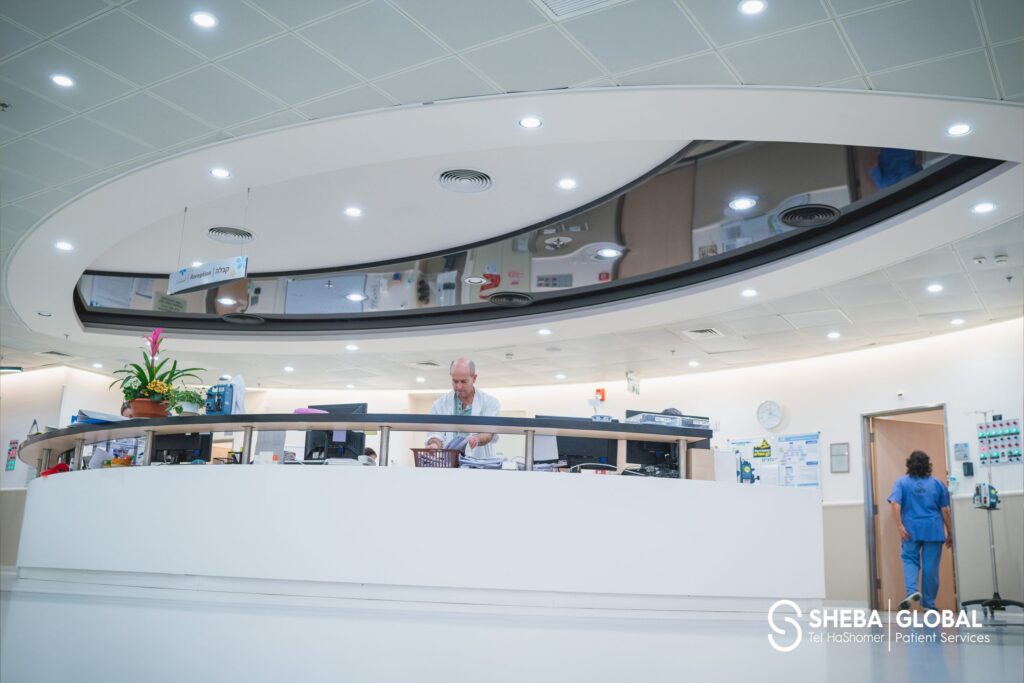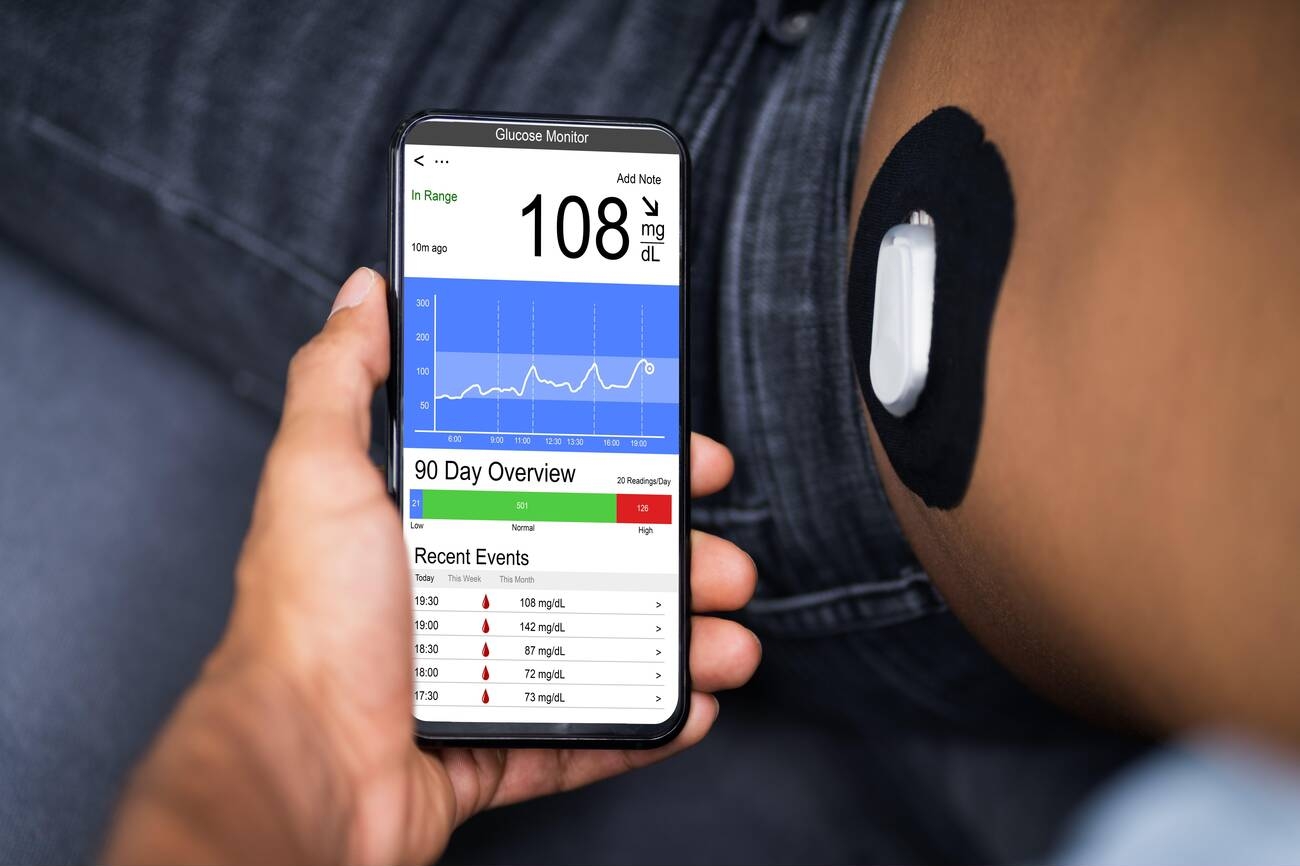Utilization of wearable telehealth technology for remote patient monitoring is validated by new Sheba medical center study

July 2022: Peer-reviewed study analyzes usability of a wearable RPM device, which detected early
warning of risk for ABCNO deterioration in 75% of patients, 38 hours on average before
actual clinical deterioration
RAMAT GAN, Israel – July 5, 2022 – Sheba Medical Center, Israel’s largest medical center and a
Newsweek top-10 ranked world’s best hospital for the last four years, announced today the
results of a new study validating the use of wearable telehealth technology for monitoring
hospitalized patients. The study, published in the peer-reviewed JMIR Formative Research
Journal, examined the effectiveness of a wearable Remote Patient Monitoring (RPM) device
which monitored for early warning signs of clinical deterioration.
Using data collected from the wearable RPM, the study found the remote device, when
measured using the NEWS method (National Early Warning Score), provided 67% of cases with
an early warning of deterioration before it was detected by medical staff, at an average of 29
hours prior to actual clinical detection. That number rose to 75% when using the ABCNO criteria
(Airway, Breathing, Circulation, Neurology, and Other), with deterioration detected an average
of 38 hours ahead of time.
“With the rapid development of innovative telehealth technologies, it is important to consider
the clinical barrier of validation which is vital for turning telehealth into evidence-based
medicine,” said Prof. Gad Segal, Head of Internal Telemedicine at Sheba Medical Center and
principal investigator of the study. “This study shows that disruptive telehealth can provide
viable alternatives to clinical deterioration detection by medical staff. The output signals from
remote monitoring can be equivalent to medical-grade ICU monitoring and that opens up the
horizon for home hospitalization of true patients, aligning with Sheba Beyond’s vision of
supporting the global transition to telemedicine.”
The wearable RPM provides continuous monitoring of blood pressure, pulse rate, oxygenation
and photoplethysmography (PPG) signal wave, all easily accessed via an LED screen and mobile
app. Biobeat®, which supplied the device, is an Israeli company founded in 2016 with the goal of
providing comprehensive AI-powered wearable remote patient monitoring platforms designed
to elevate the standard of care for both short and long-term healthcare environments.
With the outbreak of COVID-19 in Israel in March 2020, Sheba Medical Center swiftly converted
several departments to fully quarantined units for COVID-19 patients, necessitating rapid
adaptation of telehealth technologies including the Biobeat®remote health monitoring system.
In addition to its work in Israel, Sheba Beyond, Sheba’s virtual hospital, provides high-quality
remote medical care to patients around the world. It is currently using its platform to treat
Ukrainian refugees, connecting them to doctors in Sheba through a variety of femtech and other
telehealth technologies.
About Sheba Medical Center
The largest and most comprehensive medical center in the Middle East, Sheba Medical Center,
Tel Hashomer is generating global impact through its medical care, research and healthcare
transformation. Sheba’s City of Health boasts an acute-care hospital, rehabilitation hospital,
research and innovation hubs, medical simulation center and center for disaster response on
one comprehensive campus in the center of Israel. A university teaching hospital affiliated with
the Sackler School of Medicine at Tel-Aviv University, Sheba is shaping the future of healthcare,
educating the next generation of care providers. Sheba serves as a true hospital without borders,
welcoming patients and healthcare professionals from all over the world and consistently
providing the highest-level medical care to all in need.
Susan Hau is a distinguished researcher in the field of cancer cell therapy, with a particular focus on T cell-based approaches and cancer vaccines. Her work spans several innovative treatment modalities, including CAR T-cell therapy, TIL (Tumor-Infiltrating Lymphocyte) therapy, and NK (Natural Killer) cell therapy.
Hau's expertise lies in cancer cell biology, where she has made significant contributions to understanding the complex interactions between immune cells and tumors.
Her research aims to enhance the efficacy of immunotherapies by manipulating the tumor microenvironment and exploring novel ways to activate and direct immune responses against cancer cells.
Throughout her career, Hau has collaborated with leading professors and researchers in the field of cancer treatment, both in the United States and China.
These international experiences have broadened her perspective and contributed to her innovative approach to cancer therapy development.
Hau's work is particularly focused on addressing the challenges of treating advanced and metastatic cancers. She has been involved in clinical trials evaluating the safety and efficacy of various immunotherapy approaches, including the promising Gamma Delta T cell therapy.
- Comments Closed
- January 19th, 2023






Israel, Remote Patient Monitoring, Tel Aviv, Wearable Telehealth Technology
CancerFax is the most trusted online platform dedicated to connecting individuals facing advanced-stage cancer with groundbreaking cell therapies.
Send your medical reports and get a free analysis.
🌟 Join us in the fight against cancer! 🌟
Привет,
CancerFax — это самая надежная онлайн-платформа, призванная предоставить людям, столкнувшимся с раком на поздних стадиях, доступ к революционным клеточным методам лечения.
Отправьте свои медицинские заключения и получите бесплатный анализ.
🌟 Присоединяйтесь к нам в борьбе с раком! 🌟